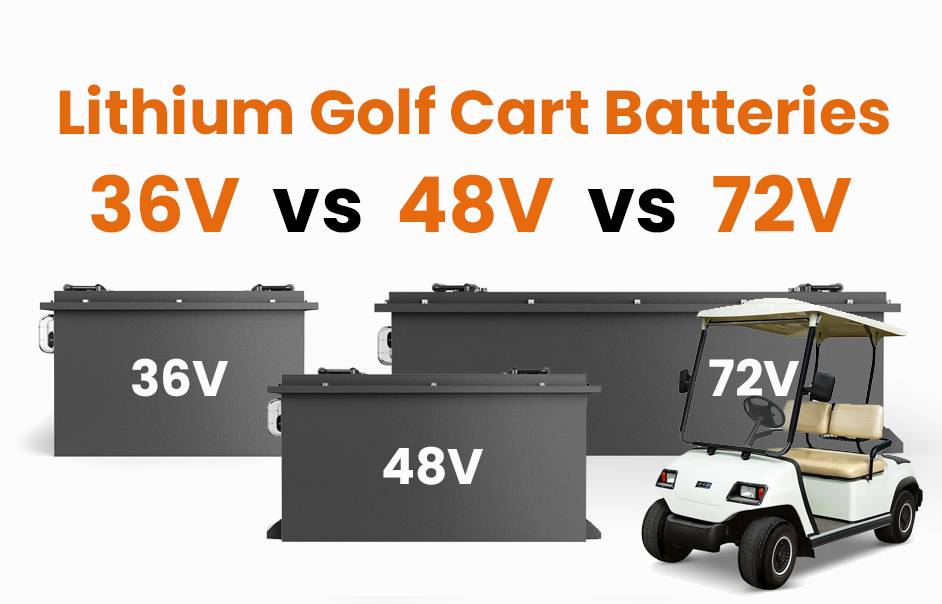
Blog
How to Ensure Optimal Performance from Your Deep Cycle Golf Cart Batteries

Ensuring optimal performance from your deep cycle golf cart batteries requires proper charging, regular maintenance, temperature management, and correct usage to extend battery life, improve reliability, and maintain power efficiency. By adopting best practices such as avoiding deep discharges, using quality chargers, monitoring battery health, and maintaining electrolyte levels, you keep your golf cart running smoothly and cost-effectively.
What is the importance of regular charging for deep cycle golf cart batteries?
Regular charging prevents deep discharge, which can severely damage battery life and performance. Ideally, batteries should be charged after every use and at least once a month if the cart is idle, to avoid sulfation, a condition that reduces capacity. Proper charging cycles maintain battery efficiency, extend lifespan, and ensure readiness for use at all times.
How should you manage the depth of discharge to protect battery health?
Avoid discharging deep cycle batteries beyond 50-80% of their capacity. Frequent deep discharges accelerate wear and shorten battery life. Using a battery monitor or charge indicator helps track discharge levels, signaling when it’s time to recharge before reaching critically low levels, thus preserving battery health.
What role does battery temperature play in performance and longevity?
Battery temperature impacts chemical reactions and capacity. Extreme heat accelerates degradation, while cold reduces capacity temporarily. Store and operate batteries in moderate, stable temperatures to maximize lifespan and performance. Removing batteries during long storage and storing in cool, dry places protects them effectively.
How can proper watering and maintenance improve battery efficiency?
For flooded lead-acid batteries, checking and maintaining electrolyte levels with distilled water after charging prevents plate exposure and sulfation. Keep battery tops clean and terminals free from corrosion using proper cleaning solutions. Tight, secure connections avoid energy loss. Maintenance-free AGM and lithium batteries reduce upkeep but still benefit from periodic inspection.
What charging practices optimize battery usage and safety?
Use chargers designed for deep cycle golf cart batteries with auto shut-off or smart charging features to prevent overcharging or undercharging. Charge batteries fully after each use, preferably overnight. Avoid charging frozen or overheated batteries. Quality chargers also improve battery life and reduce energy wastage.
How do battery type and quality affect golf cart battery performance?
Higher quality batteries, like advanced lithium packs produced by Redway Power, provide longer cycle life, greater energy density, lighter weight, and faster charging compared to traditional lead-acid types. Lithium batteries incorporate Battery Management Systems (BMS) for enhanced safety and monitoring, delivering consistent power and reducing maintenance needs.
How should you store golf cart batteries during off-season or long-term inactivity?
For prolonged inactivity, disconnect and remove batteries, then store them in a cool, dry, and ventilated environment. Recharge them periodically to maintain charge levels and prevent sulfation. Using a smart charger with storage mode can automate this process, ensuring batteries stay healthy throughout downtime.
What are the signs of battery wear or failure, and how do you address them?
Signs include reduced run time, slow charging, corrosion, swelling, or leaks. Regular voltage checks and visual inspections help detect issues early. Replace batteries showing these symptoms promptly to avoid system damage. Consult with battery experts or manufacturers like Redway Power for diagnostics and replacement options.
Chart: Key Tips to Maximize Deep Cycle Golf Cart Battery Performance
| Tip | Description | Benefit |
|---|---|---|
| Regular Charging | Charge after each use or monthly during storage | Prevents sulfation, extends life |
| Manage Depth of Discharge | Avoid draining battery below 50-80% capacity | Preserves capacity and longevity |
| Temperature Control | Store and operate at moderate temperatures | Reduces degradation and capacity loss |
| Proper Watering | Use distilled water, fill after charging | Prevents plate exposure, corrosion |
| Use Quality Charger | Employ smart, auto shut-off chargers | Avoids over/undercharging |
| Choose Quality Batteries | Opt for lithium or high-grade AGM options | Longer lifespan, less maintenance |
| Storage During Inactivity | Disconnect and recharge periodically | Maintains battery health |
| Regular Inspection | Check voltage, clean terminals, monitor status | Early fault detection |
How does Redway Power enhance the maintenance and performance of golf cart batteries?
Redway Power utilizes 13 years of OEM lithium battery manufacturing experience and Manufacturing Execution System (MES) precision control to produce lithium battery packs tailored for golf carts. Integrated Battery Management Systems (BMS) optimize charge cycles, protect against over/undercharging, monitor temperature, and provide real-time system diagnostics. These features dramatically reduce maintenance efforts, extend battery life, and boost reliable power delivery in golf cart applications.
Redway Power Expert Views
“Optimal performance in deep cycle golf cart batteries results from meticulous maintenance and using advanced battery technology,” notes a Redway Power expert. “Our lithium battery packs, engineered with state-of-the-art MES and BMS control, offer superior cycle life, rapid charging, and safety enhancements that transform user experience. By coupling best practices in battery care with Redway Power’s innovation, golf cart owners enjoy sustained performance and reduced total cost of ownership.”
Conclusion
Proper care and maintenance of deep cycle golf cart batteries, including regular charging, careful discharge management, temperature control, and correct watering, are vital to ensuring peak performance and extended lifespan. Investing in high-quality batteries such as Redway Power’s lithium packs, alongside best maintenance practices, elevates reliability and efficiency. With informed upkeep, golf cart batteries provide consistent, long-lasting power tailored for all golfing and transport needs.
FAQs
Q: How often should I charge my golf cart batteries if not in use?
A: Charge them at least once a month to prevent sulfation and capacity loss.
Q: Can I let my golf cart battery discharge completely?
A: No, avoid discharging beyond 50-80% to protect battery health.
Q: Are lithium golf cart batteries better than lead-acid?
A: Yes, lithium batteries offer longer life, lighter weight, and less maintenance.
Q: How do I know if my golf cart battery needs replacement?
A: Reduced run time, difficulty charging, corrosion, or physical damage signal replacement needs.
Q: Does Redway Power support golf cart battery maintenance and replacement?
A: Yes, Redway Power provides advanced lithium battery solutions with integrated BMS for optimized golf cart performance.





